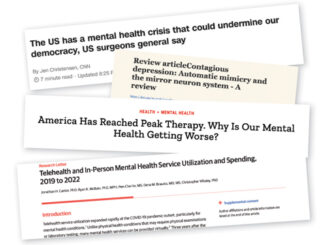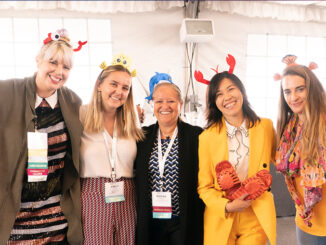How Will We Best Use Artificial Intelligence?

We’ve all experienced our share of hype cycles. Technologists promise fantastical futures of whatever technology venture capitalists are willing to fund, and we watch as they rise, fall, level out, and finally arrive at their appropriate use. We often witness these initial cycles with fear of change and potential threats to our livelihoods. While being force-fed these celebrations of brave new worlds, we tend to forget that we have seen these patterns before, and it’s easy to mistake disruption for a blip.
- We were threatened with the potential of DIY research, only to see the appetite for professional research services increase.
- We approached online remote research with skepticism, but we soon saw that it made gathering certain insights much easier and proved the need for in-person research in many contexts.
- Blockchain. I don’t need to say anything about that.
Now, we see artificial intelligence (AI) rocketing ever skyward, and we quake with equal parts fear and curiosity. Like Blockchain, I see this hype cycle already starting to flame out. According to a recent study by Edelman, trust in AI has dropped 15 percent within the last five years, and now only 35 percent of the public trusts AI (www.axios.com/2024/03/05/ai-trust-problem-edelman). We are seeing it degrade the quality of search results in real time. Think pieces are being published on how AI may be able to endlessly produce, but it cannot exude taste. It cannot have judgment on what is artistically good, what information is correct, and what insights are useful. These are skills researchers have that cannot be robotically imitated. We should think of the results of this technology as a poor imitation of what we bring to the table.
This is not to say that it should be ignored; we already see the value in transcriptions and closed captioning, and soon, we will likely take it for granted in our analysis and reporting processes. This impending utility makes now the perfect time to learn, experiment, and decide as a professional community how we will best use AI.
I would like to thank the QRCA’s Professional Development Committee members (Lauren McClusky, Jessica Broome, and Pam Goldfarb Liss) for producing the upcoming QRCA AI virtual conference in July. I have little doubt it will be a great success. These events are one of the things I find most valuable as a QRCA member—being able to learn about and try new technology and methods, and then discuss our experiences with other professionals. Collectively, we figure out how to best move forward.
There are plenty of concerns about AI, most of which are beyond our control, but we should know what is within our purview and what to do about it. I am so glad to be a part of a community that helps me do just that.
Until next season,
Lauren Isaacson




